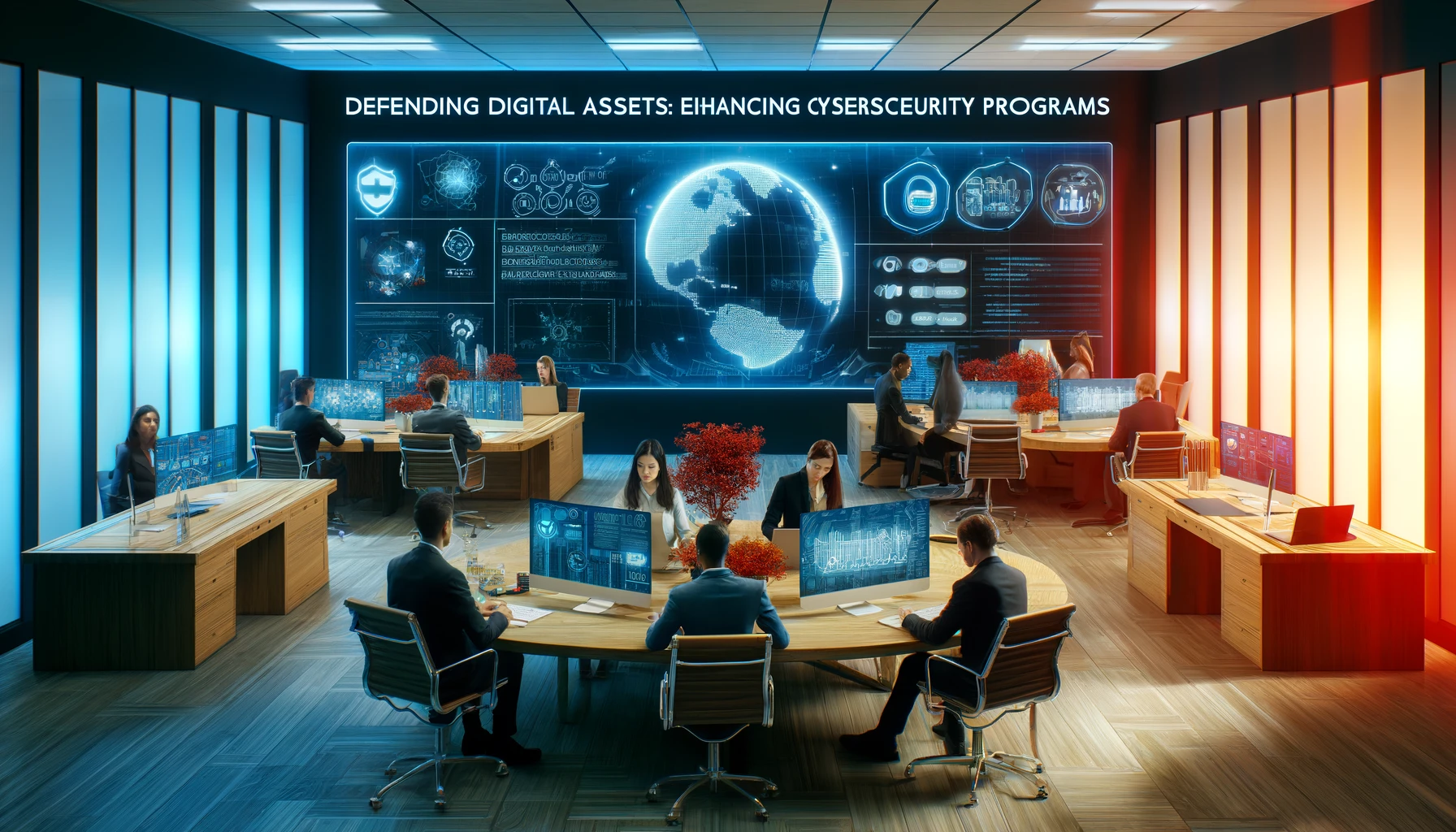3 min read
Secure your future with an online Cybersecurity Degree.
Cybersecurity Online Degree: Unleashing the Power of Digital ProtectionIntroductionCybersecurity has emerged as one of the most critical fields in...
2 min read
 The Amazing Team at Force One
:
May 14, 2024 9:30:00 AM
The Amazing Team at Force One
:
May 14, 2024 9:30:00 AM
Cybersecurity Degree Online: Safeguarding the Digital World
In today's hyper-connected world, where digital information is at the core of businesses, governments, and personal lives, the need for cybersecurity has never been more critical. With cyberattacks becoming increasingly sophisticated and widespread, the demand for professionals with a cybersecurity degree has skyrocketed. In this article, we will explore the definition, history, importance, current trends, challenges, solutions, and future prospects of an online cybersecurity degree, providing readers with a comprehensive understanding of this evolving field.
To begin with, cybersecurity is the practice of protecting computer systems, networks, and data from unauthorized access, attack, or damage. It encompasses a range of measures designed to ensure the confidentiality, integrity, and availability of information. As businesses and individuals store an ever-increasing amount of sensitive information online, including financial data, intellectual property, and personal information, the need to secure these assets grows more urgent.
The history of cybersecurity can be traced back to the early days of computing when security threats were limited. The emergence of viruses and malware in the 1980s marked the beginning of a new era of cyber threats. The evolving nature of cybercrime necessitated the development of measures to combat it, leading to the establishment of dedicated cybersecurity teams and the emergence of specialized cybersecurity degrees.
The importance of earning a cybersecurity degree online cannot be understated. With businesses becoming increasingly dependent on technology, the risks associated with cyberattacks have grown exponentially. As a result, organizations require cybersecurity professionals who possess a deep understanding of complex networks, emerging threats, and effective countermeasures. A degree in cybersecurity equips individuals with the necessary knowledge and skills to protect sensitive data, detect vulnerabilities, and respond to threats promptly.
Current trends in cybersecurity reflect the rapidly evolving threat landscape. With the proliferation of internet-connected devices, the Internet of Things (IoT) has emerged as a significant concern. Connected devices, ranging from smart homes to industrial control systems, introduce new entry points for potential cyberattacks. Additionally, artificial intelligence (AI)-based attacks have also become prevalent, as hackers harness the power of machine learning algorithms to breach security systems. Staying ahead of these trends necessitates continuous learning and adapting to the latest technologies and techniques.
However, the challenges faced by cybersecurity professionals are not limited to technological advancements. One of the significant challenges is the shortage of highly skilled personnel. The demand for cybersecurity experts significantly outpaces the supply, resulting in a skill gap. This gap is further exacerbated by the rapidly changing threat landscape and evolving attack methods, making it crucial to continuously update skills and knowledge. Furthermore, the interconnectedness of the global digital landscape means that cyber threats transcend geographical boundaries, requiring collaboration and cooperation among nations and organizations.
Addressing these challenges requires a comprehensive approach that combines technical expertise, policy development, and ongoing education. Online cybersecurity degree programs offer a flexible and accessible option for individuals seeking to enter or advance in this field. These programs provide a deep understanding of relevant technologies, cybersecurity principles, risk management, and ethical hacking. Coupled with hands-on experience and real-world simulations, online programs equip graduates with critical skills that align with industry demands.
Looking ahead, the future prospects for cybersecurity professionals are promising. As the severity and frequency of cyberattacks increase, the demand for skilled cybersecurity experts is expected to grow. Additionally, emerging technologies such as cloud computing, big data analytics, and AI will present new challenges and opportunities. Professionals with a strong foundation in cybersecurity will play a crucial role in protecting these technologies and ensuring their responsible and secure implementation.
In conclusion, a cybersecurity degree online is an essential investment in an increasingly digital and interconnected world. Its definition, history, importance, current trends, challenges, solutions, and future prospects highlight the critical role that cybersecurity professionals play in safeguarding sensitive information. By staying informed, acquiring new skills, and embracing continuous learning, individuals pursuing an online cybersecurity degree can help mitigate risks, protect assets, and contribute to a more secure digital future.

3 min read
Cybersecurity Online Degree: Unleashing the Power of Digital ProtectionIntroductionCybersecurity has emerged as one of the most critical fields in...

3 min read
Cybersecurity Major: Safeguarding the Digital WorldIntroduction:In today's digital era, where technology permeates every aspect of our lives,...

3 min read
Cybersecurity Programs: Safeguarding the Digital WorldIn today's interconnected world, where technology proliferates every aspect of our lives, the...